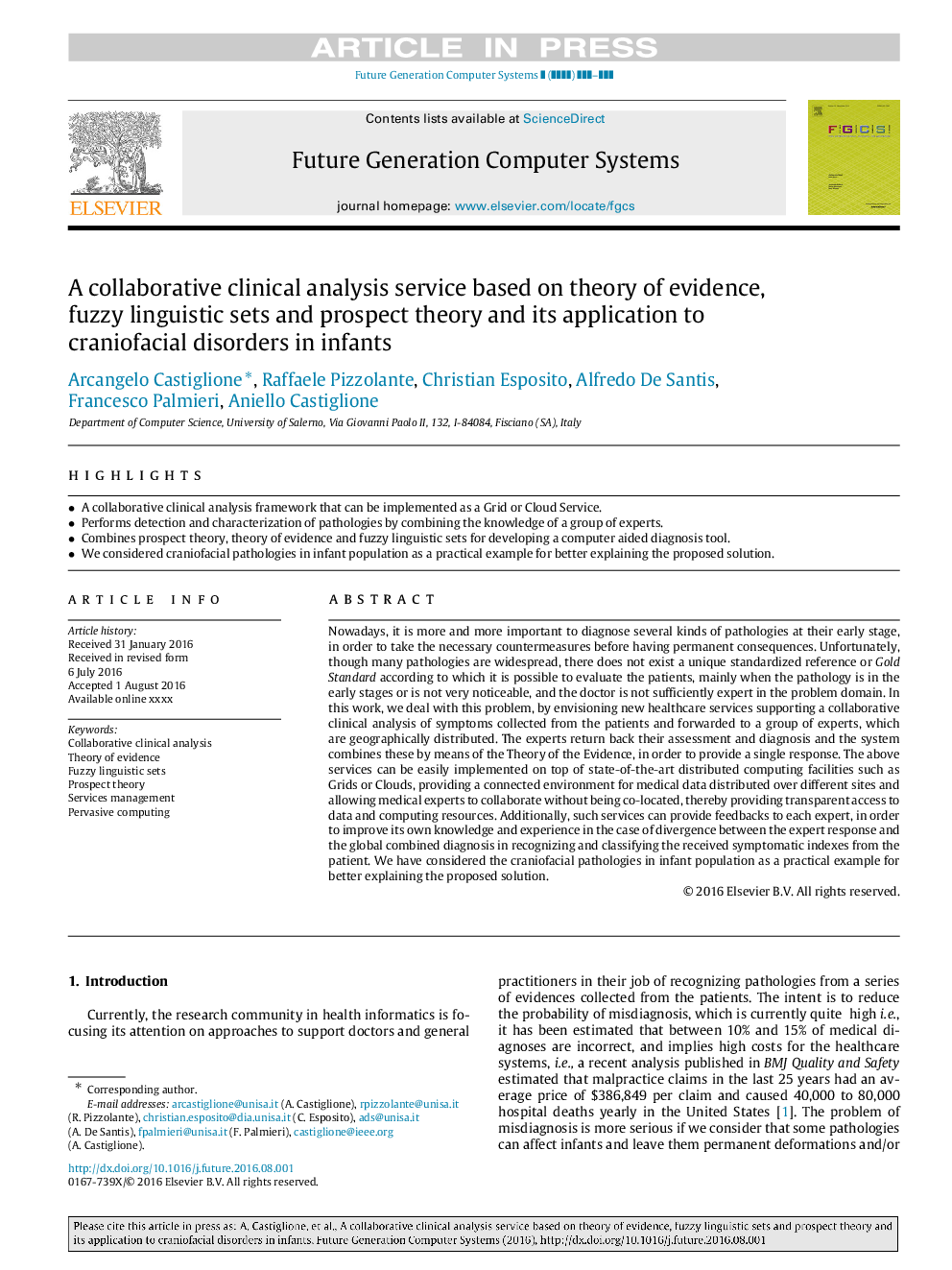| Article ID | Journal | Published Year | Pages | File Type |
|---|---|---|---|---|
| 4950544 | Future Generation Computer Systems | 2017 | 12 Pages |
Abstract
Nowadays, it is more and more important to diagnose several kinds of pathologies at their early stage, in order to take the necessary countermeasures before having permanent consequences. Unfortunately, though many pathologies are widespread, there does not exist a unique standardized reference or Gold Standard according to which it is possible to evaluate the patients, mainly when the pathology is in the early stages or is not very noticeable, and the doctor is not sufficiently expert in the problem domain. In this work, we deal with this problem, by envisioning new healthcare services supporting a collaborative clinical analysis of symptoms collected from the patients and forwarded to a group of experts, which are geographically distributed. The experts return back their assessment and diagnosis and the system combines these by means of the Theory of the Evidence, in order to provide a single response. The above services can be easily implemented on top of state-of-the-art distributed computing facilities such as Grids or Clouds, providing a connected environment for medical data distributed over different sites and allowing medical experts to collaborate without being co-located, thereby providing transparent access to data and computing resources. Additionally, such services can provide feedbacks to each expert, in order to improve its own knowledge and experience in the case of divergence between the expert response and the global combined diagnosis in recognizing and classifying the received symptomatic indexes from the patient. We have considered the craniofacial pathologies in infant population as a practical example for better explaining the proposed solution.
Related Topics
Physical Sciences and Engineering
Computer Science
Computational Theory and Mathematics
Authors
Arcangelo Castiglione, Raffaele Pizzolante, Christian Esposito, Alfredo De Santis, Francesco Palmieri, Aniello Castiglione,
